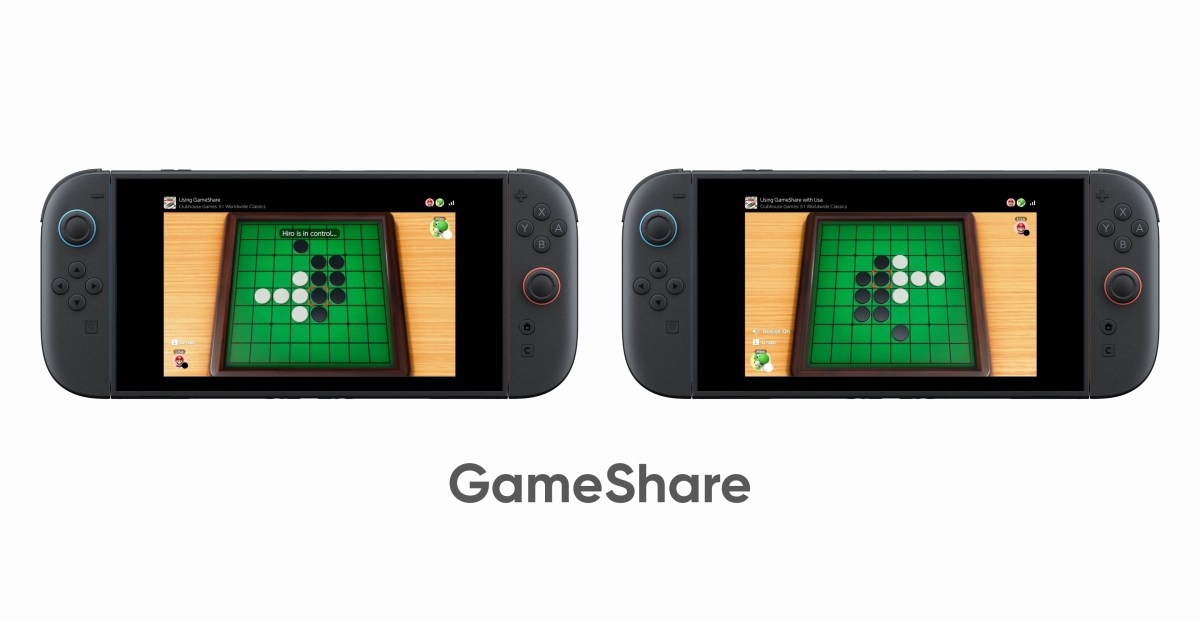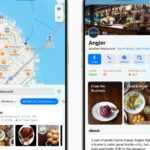The Nintendo Switch 2 Direct was filled to the brim with information about all of the new system’s unique hardware and software compatibilities. Most of the discussion and allure of Switch 2 comes from features like GameChat, the mouse capability of the Joy-Cons, and the Nintendo Switch camera peripheral. One notable feature of Switch 2 is flying a bit under the radar, though: GameShare. “With GameShare, a new Nintendo Switch 2 feature, players can share and play the same game with others who do not have the game,” the official description of the feature reads in a press release.
“If one person has a Nintendo Switch 2 system and a game compatible with GameShare, that person can invite others to temporarily play the same game together via local play with their Nintendo Switch 2 or Nintendo Switch system,” it continues. As someone who owns multiple Switch systems and knows other Nintendo fans, I find a feature like GameShare alluring. It also made me look back and think about the importance of connectivity has historically played in Nintendo handhelds, from the Game Boy’s Link Cable to the DS’ Download Play.
As Nintendo’s official description of the feature explains, GameShare makes playing a multiplayer game with others smoother by removing the barrier to entry for game ownership. Only one person needs to own a title like Clubhouse Games: 51 Worldwide Classics, and others can easily connect locally and start playing. It’s a feature that seems simple and negligible in an era of free-to-play game popularity, but I think GameShare is quite an important feature in expanding the reach and playability of Nintendo Switch and Switch 2 games. I know this because similar features did the same for me on previous Nintendo systems.
Going back to the Game Boy, Game Boy Color, and Game Boy Advance, the Link Cable for those systems opened up multiplayer opportunities I couldn’t find elsewhere. I could get Pokémon unavailable in the version of the game I was playing, or access a new mode that wasn’t playable on my own. My love for this kind of game-sharing feature took form during the Nintendo DS era, where I used DS Download Play a lot. DS Download play worked very similarly to GameShare, as players could locally stream a DS game to those nearby to play together. I spent countless hours taking advantage of DS Download Play as a kid, particularly to play New Super Mario Bros.’ forgotten, but highly underrated, multiplayer mode.
While my family only owned one copy of New Super Mario Bros, my brother and I could use a feature like Download Play to make it one of our most-played multiplayer games. I also used it with friends to experience titles I didn’t own, like Mario Kart DS or Tetris DS. It got me to play DS multiplayer even though I preferred single-player games as a child, and exposed me to new games or parts of games that I never would’ve had the opportunity to otherwise. Through a feature like GameShare and other upcoming software capabilities like Digital Game Cards, it’ll be easier to share the games I love with others than ever before.
I could share some of my Switch favorites with my younger cousins, or use it to make playing games like Super Mario 3D World cooperatively less of a hassle. I might be held back a little by the limitations of which titles choose to support GameShare, but it’s a feature I plan on using whenever possible. At a broader level, it looks like Nintendo wants to promote connectivity with the Nintendo Switch 2. Mario Kart World is a launch title, GameChat is a feature baked right into the Joy-Con 2 and Pro Controllers, and it made a point to emphasize GameShare during the Direct.
Then again, this retrospective look at Nintendo’s handheld history shows that connectivity has always played an important role in Nintendo’s handheld gaming efforts. I think that’s what has given their handhelds some resonance and staying power across all ages, compared to the competition, and one of the reasons I believe Nintendo Switch 2 is likely poised for success. It’s becoming increasingly apparent to the video game industry that wide availability is closely related to success; a feature like GameShare is one way to promote that without going fully multiplatform.
Read the full article here















